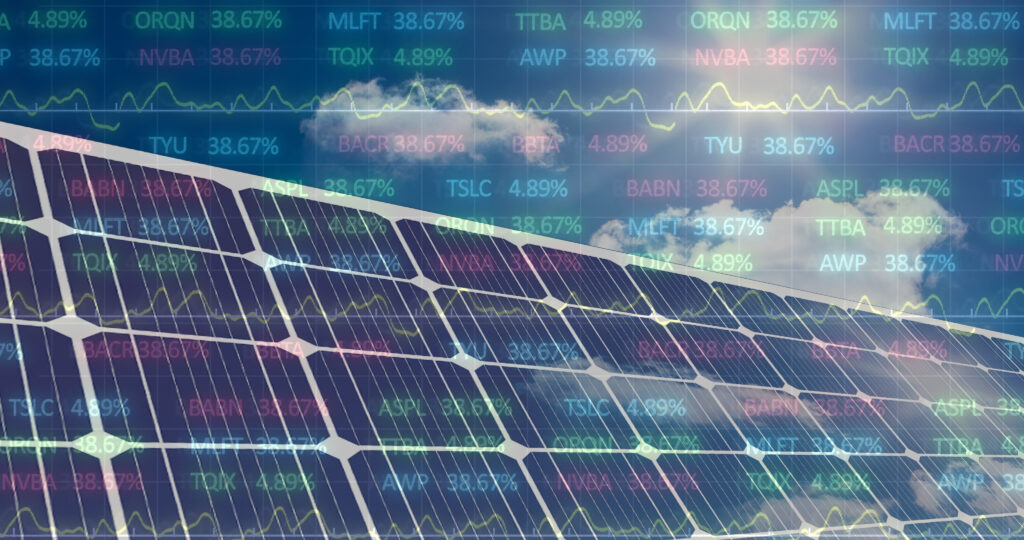The primary reason why homeowners install
solar panels is to save money on monthly electricity bills. The fact that solar
is an eco-friendly and clean source of energy, adds
to its charm. But another factor that contributes to the popularity of solar is
its long-term impact. Solar panels last over 25 years. This is a crucial piece
of information if you want to sell your house a decade later. Most homeowners
have one question regarding its long-term impact – will solar increase the
value of a house?
The short answer? Yes!
In this article, we’ll discuss the trends of
solar-enabled houses in the market and factors that contribute to the
increasing value of houses.

How much home value is
increased by solar energy?
The last decade saw a boom in solar energy adoption among homeowners. Lawrence Berkeley National Laboratory (LBNL) in 2013 first tried to find a connection between solar energy and home resale value. The study found that the resale value of solar-powered houses in California went up to $5,911 for each kilowatt of system installed.
There was another study conducted by LBNL that offered a nationwide picture. The report found that new homebuyers were willing to pay $4 per watt of the solar energy system installed, equating to a premium of $15,000.
In recent times, Zillow’s research shows that people are ready to pay 4.1% more for houses that have solar systems installed in comparison to normal houses. This brings an added value of $9,274 to solar-powered houses. However, this is a national average, with houses in few locations going far higher than this.
As for example New York, the value of solar houses has increased by 5.4% and houses in San Francisco are being sold for an additional $41,658. On the flipside, locations such as Riverside, CA have seen a value increase of just 2.7%.
Factors impacting home resale value
The difference in resale value depends on a
lot of factors.
Location
The geographical location of the solar-powered house impacts how much it’ll be sold for. Communities that are aware of the power of solar energy and open to adopting it, will be willing to pay more for such houses. Another factor that depends on the location is the sun exposure. Areas that get more sunlight will have costlier houses.
Local utility charge and installation cost
If local utilities offer very competitive prices and the electricity bills are generally low, that area will see a lower appreciation for solar-powered houses. Alternatively, if you live in an area where electricity bills are high, you’ll be able to sell your solar-powered house for more. The same thing happens with solar installation charges. If local companies charge exorbitant fees for installing solar, homeowners will be less likely to opt for it.
System health
Solar energy systems, just like any gadgets, depreciate with time. When a system is very old, the resale value of the house will not increase much. On top of that, if the system output is low and families have to frequently depend on grid connection, then new buyers will think twice before paying extra. However, if the system can complement everyday usage, you can add a bigger price tag to your house.
Does solar increase
property tax?
property tax?
When the value of your house goes up, you might have to pay a heftier property tax. This is a common worry among homeowners. Generally, most states exempt solar from property tax, while some offer exemptions up to a certain period or amount of money. Here’s the updated state-wise breakdown:
-States that offer 100% property tax exemption: Arizona, Colorado, Connecticut, District of Columbia, Florida, Indiana, Kansas, Louisiana, Maryland, Michigan, Minnesota, Missouri, New Jersey, New Mexico, Oregon, Rhode Island, Texas, Vermont, Wisconsin
-States that offer local tax exemption: Alaska, Hawaii, New Hampshire, Ohio, Virginia
-States that offer 100% property tax exemption for 20 years: Massachusetts
-States that offer 100% property tax exemption for 20 years: Montana
-States that offer 100% property tax exemption for 20 years: Iowa, New York, North Dakota
-States that offer 100% property tax exemption until 2025: California
-States that offer 80% property tax exemption: North Carolina
-States that offer property tax exemption based on system assessment: Illinois, Nebraska, Tennessee
-States that offer property tax exemption of $50,000 or 70% of the total property value: South Dakota
-States that don’t offer any property exemption: Alabama, Arkansas, Delaware, Georgia, Idaho, Kentucky, Maine, Mississippi, Nevada, Oklahoma, Pennsylvania, South Carolina, Utah, Washington, West Virginia, Wyoming

Why do people pay
extra for solar-powered homes?
There are multiple, and quite compelling reasons behind the increased value of homes with solar energy systems installed.
- Solar saves money by replacing monthly electricity bills while offering more stable and efficient output
- Solar energy systems are future proof energy solutions and it helps people reduce their carbon footprints
- Solar gives people more control over their electricity usage
So if you’re planning to adopt solar energy click on the button to get started


